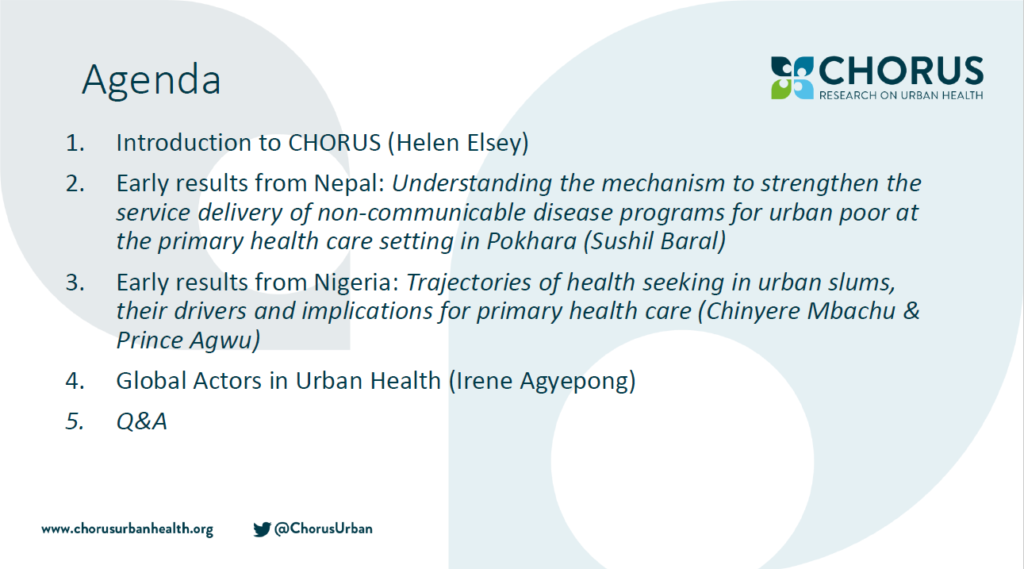CHORUS Presentation: Initial findings from needs assessments in Nepal and Nigeria
Members of the CHORUS team presented initial needs assessment findings from the projects in Nigeria and Nepal to the FCDO Health Network Technical Meeting on 22 September 2022. The presentation included a brief introduction on CHORUS, followed by:
- Discussion with Dr. Sushil Baral, HERD International, Nepal, on the preliminary findings of the needs assessment phase of the CHORUS Nepal project titled ‘Understanding the mechanism to strengthen service delivery of non-communicable disease programmes for urban poor at the primary healthcare settings in Pokhara, Nepal’
The needs assessment phase sought to a) explore perceptions and priorities of stakeholders at system and health facility level; b) map and assess service readiness of the health care facilities delivering NCD care services; c) map and understand characteristics of the urban poor community in selected wards of the PMC; d) understand barriers and enablers of urban poor communities in accessing basic NCD care services; and e) assess the capacity of the municipality to engage with the private health sectors and deliver NCD care services at different municipality levels.
- Discussion with Prof. Obinna Onwujekwe, University of Nigeria Health Policy Research Group, on the CHORUS Nigeria project titled ‘Developing and institutionalizing health system linkages between the public and informal sectors for improving the equitable provision and use of appropriate essential health services in urban slums’
The needs assessment for the Nigeria project sought to a) map the types, cadres, levels and locations of formal and informal health service providers in the urban slums, and determine the quality of services they provide; b) determine the types of linkages and relationships that exist between the formal health system and informal providers; c) determine the capacity needs and assets of both the formal health system and informal providers for establishing linkages; d) assess the perceptions of key stakeholders, including the urban slum dwellers, providers and policymakers for linking formal providers into the formal health systems, and suggestions of strategies to be deployed.
